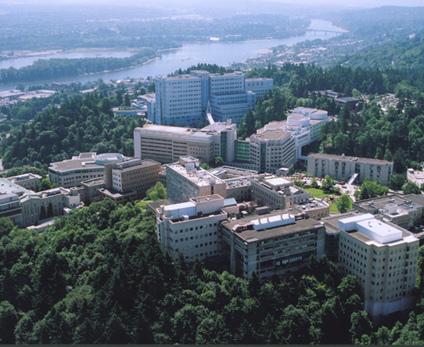Grant given to stimulate ISU science programs

Birds’ eye view of the Howard Hughes Medical Institute
June 20, 2010
Science education at Iowa State is in the process of being completely revitalized.
The $1.6 million Howard Hughes Medical Institute grant given to Iowa State will enable faculty members from different departments to work together to change their curricula to enhance students’ understanding of science.
“We figured out that if we want to make an impact on student learning, it would be much better if we could do this across certain departments,” said Craig Ogilvie, professor of physics and project director of the grant. “Hopefully, by having all of [the selected departments] do [the curricular changes] at the same time, students will come out of it with a stronger understanding of science.”
The Howard Hughes Medical Institute issues $79 million to universities nationwide in an attempt to bolster the nation’s undergraduate and pre-college science education. Grants of $800,000 to $2 million will be awarded to 50 research universities in 30 states and the District of Columbia. The money is used over a four-year span to create innovative, research-based courses.
“In a traditional science lab, quite often, you go into a lab and you have a set of instructions and equipment, and you basically follow instructions using the equipment. The lab is almost an exercise of if you can accurately reproduce the results that the lab was designed for you to see,” Ogilvie said.
“What we are doing, depending upon which level lab, is we’re changing [the traditional science lab], such that the students have a lot more choice and decision making about what questions that they are interested in and how they would design an experiment using much of the same equipment,” he said.
Chemistry, biology, physics, astronomy, meteorology, geology and psychology departments will all participate in the program. Depending on the course’s enrollment, the revised labs will be either inquiry-based or project-based labs, where students do four- or five- week science modules based on the individual student’s interests. By allowing students to choose what questions they want to answer, the hope is the students will have a greater interest in learning and understanding science.
“I think there’s a lot of evidence that the traditional lab where students are just replicating a prior result, doesn’t lead to understanding,” Ogilvie said. “Having students generate their own questions and design experiments will improve their understanding because there’s much more engagement, and I think that students, even if they don’t follow a career as being a scientist, will have a better understanding of how science makes progress because the idea of coming up with a question and trying to figure out how to measure something that will give you an answer to that question is very much what scientists do in their job.”
The program will take three to four years to be fully in effect. Over the next one to two years, there will be trials to see how to best implement the program.
“We hope that, as a result of these experiences, we will get more students who are interested in science, and will consider going down a career path as a science major and then onto graduate school potentially,” Ogilvie said. “We are really excited about it.”
















